Certain dicarboxylic acids spontaneously eliminate water when heated forming cycioc anhydirides. But for the reaction to be successfully. The cyclic anhydrides product must normally have a ring size of fivee or six members. There are two important reasons, first, the second carboxyl group can serve as the acid catalyst (by intramolecular proton transfer), as well as the nucleophile. And second, the high temperature involved reduce the need for catalyst.
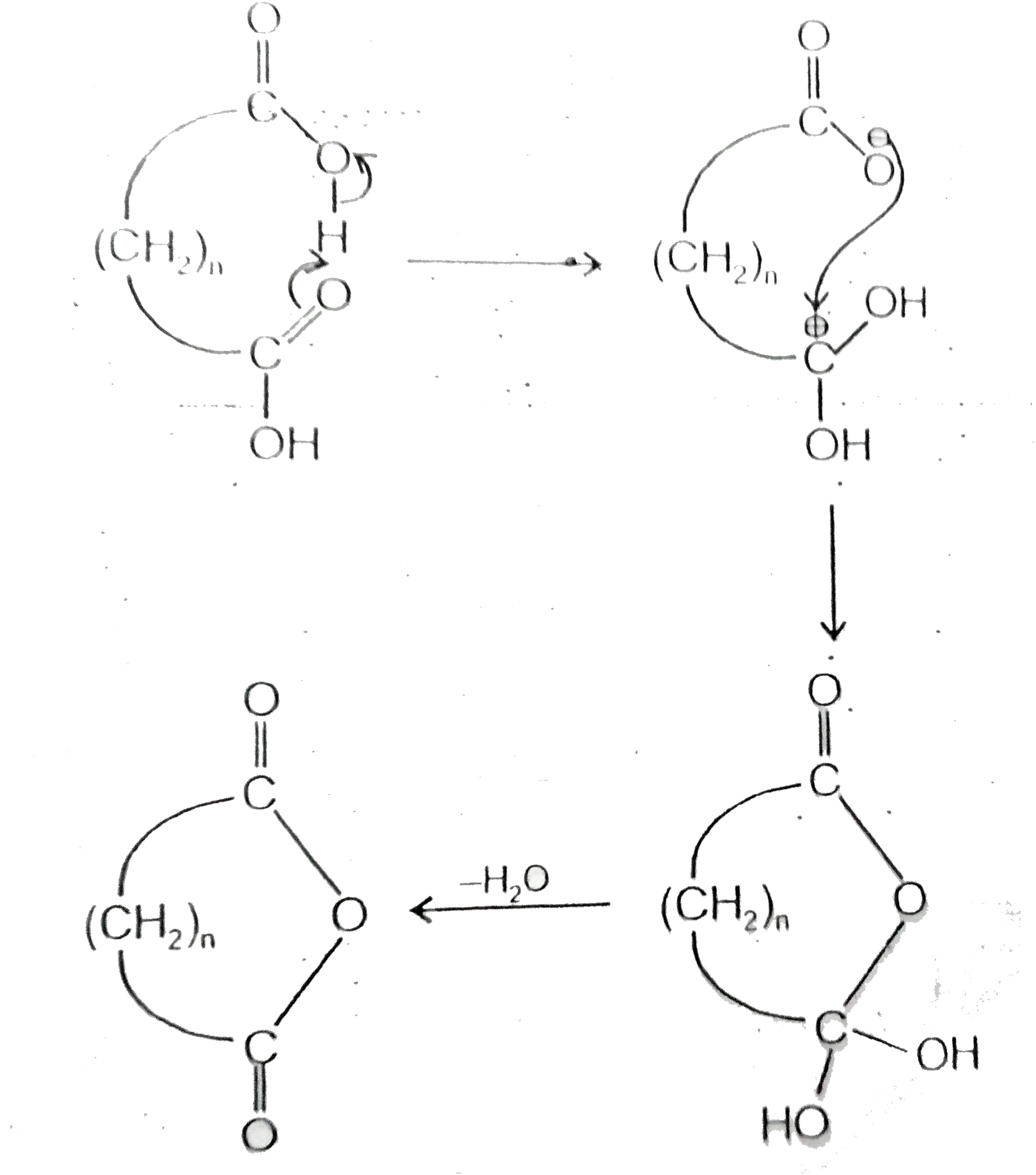
Which of the following dicarboxylic acid will not for cyclic anhydrides?
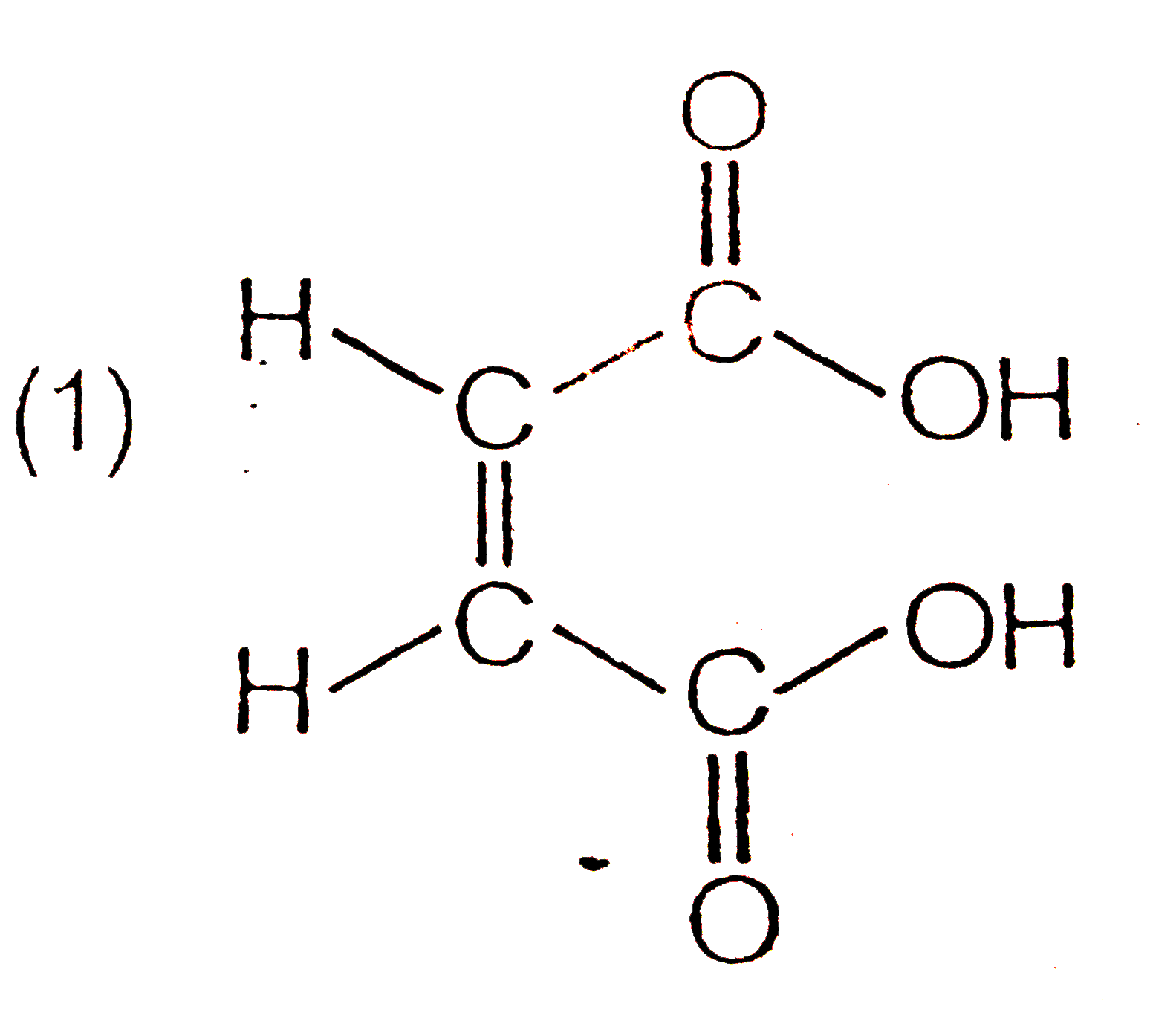
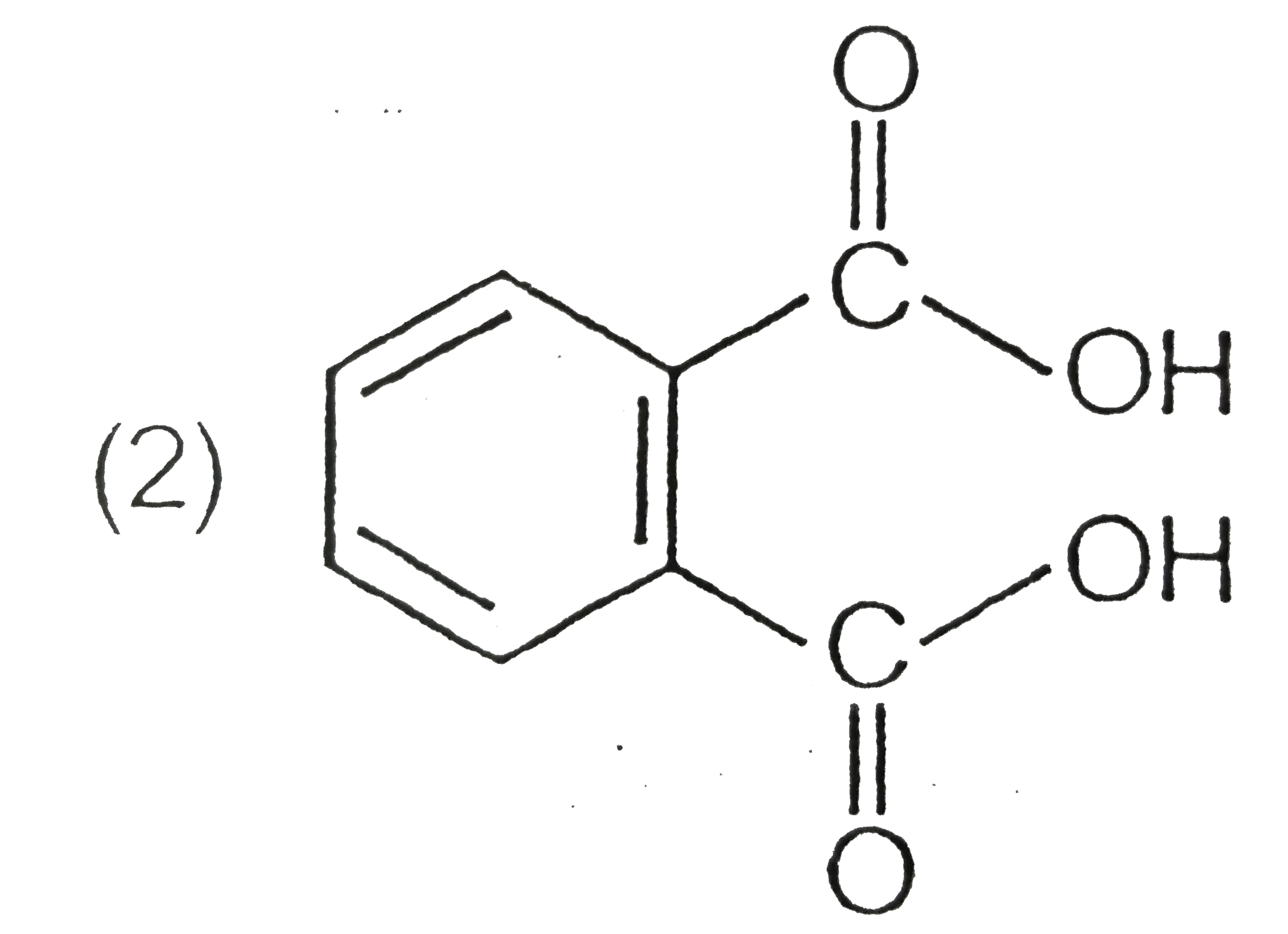
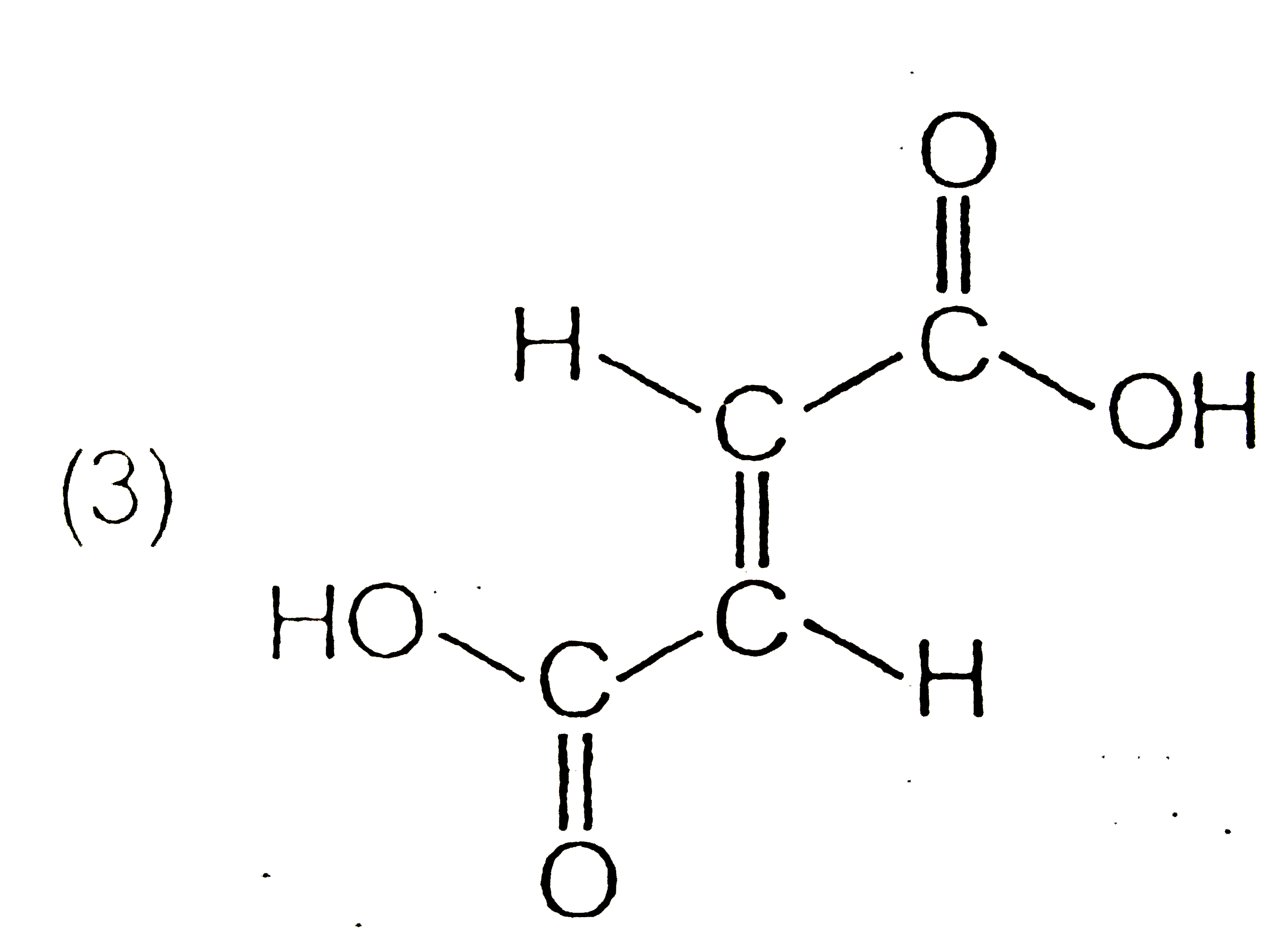
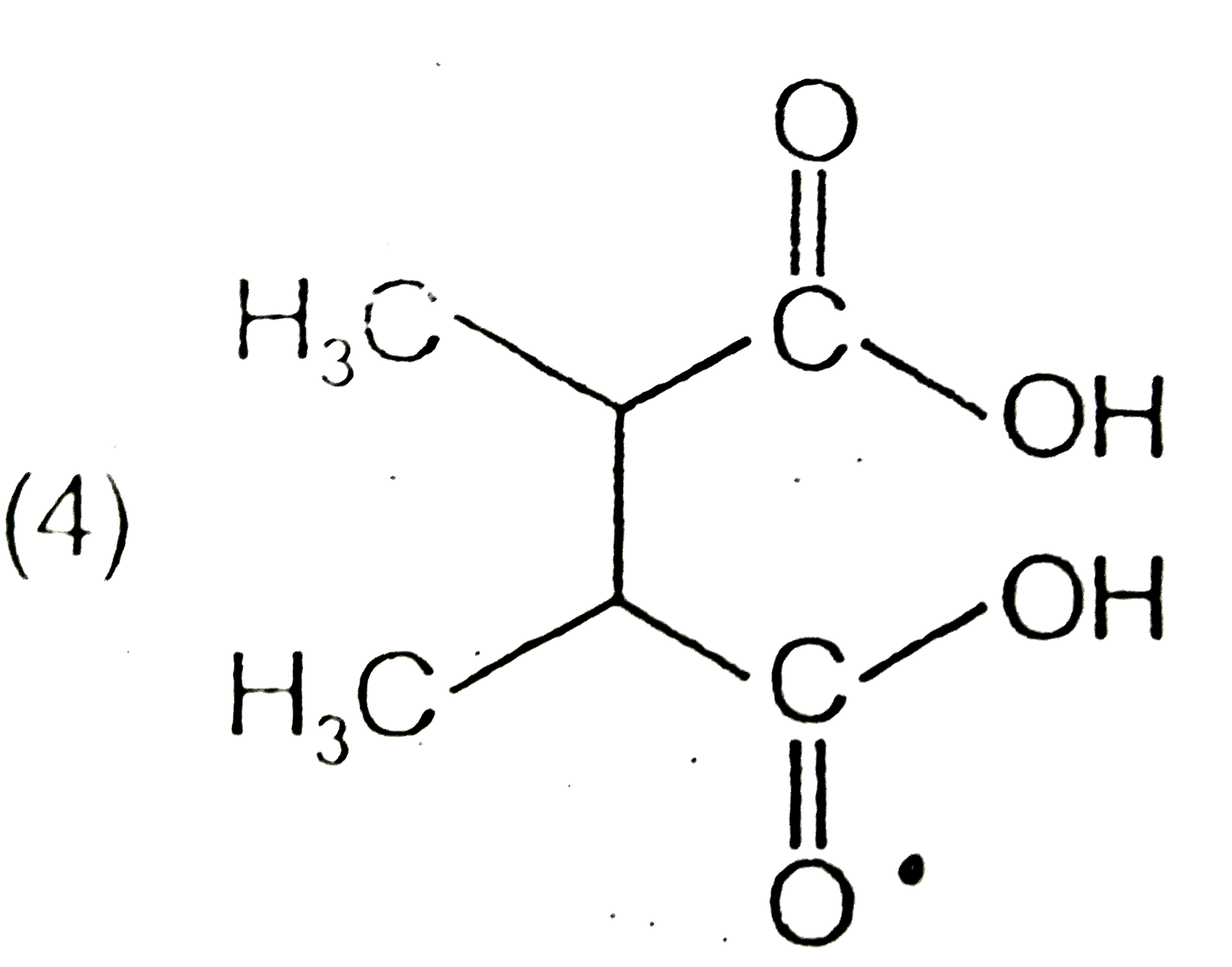
The correct Answer is:C
Step by step video, text & image solution for Certain dicarboxylic acids spontaneously eliminate water when heated forming cycioc anhydirides. But for the reaction to be successfully. The cyclic anhydrides product must normally have a ring size of fivee or six members. There are two important reasons, first, the second carboxyl group can serve as the acid catalyst (by intramolecular proton transfer), as well as the nucleophile. And second, the high temperature involved reduce the need for catalyst. Which of the following dicarboxylic acid will not for cyclic anhydrides? by Chemistry experts to help you in doubts & scoring excellent marks in Class 12 exams.
Updated on:21/07/2023Topper's Solved these Questions
- ALDEHYDES, KETONES AND CARBOXYLIC ACIDS BOOK - AAKASH INSTITUTECHAPTER - ALDEHYDES, KETONES AND CARBOXYLIC ACIDS EXERCISE - Assignment SECTION - E Assertion - Reason Type Questions)
7 Videos
- ALDEHYDES, KETONES AND CARBOXYLIC ACIDS BOOK - AAKASH INSTITUTECHAPTER - ALDEHYDES, KETONES AND CARBOXYLIC ACIDS EXERCISE - Assignment (SECTION - F Matrix Match type Questions)
4 Videos
- ALDEHYDES, KETONES AND CARBOXYLIC ACIDS BOOK - AAKASH INSTITUTECHAPTER - ALDEHYDES, KETONES AND CARBOXYLIC ACIDS EXERCISE - Assignment (SECTION -C Objective type questions more than one options are correct)
11 Videos
- ALCOHOLS, PHENOLS AND ETHERS BOOK - AAKASH INSTITUTECHAPTER - ALCOHOLS, PHENOLS AND ETHERS EXERCISE - Try Yourself
5 Videos
- AMINES BOOK - AAKASH INSTITUTECHAPTER - AMINES EXERCISE - Assignment Section -J (Aakash Challengers Questions)
9 Videos
Similar Questions
Knowledge Check
Certain dicarboxylic acids spontaneously eliminate water when heated forming cycioc anhydirides. But for the reaction to be successfully. The cyclic anhydrides product must normally have a ring size of fivee or six members. There are two important reasons, first, the second carboxyl group can serve as the acid catalyst (by intramolecular proton transfer), as well as the nucleophile. And second, the high temperature involved reduce the need for catalyst.
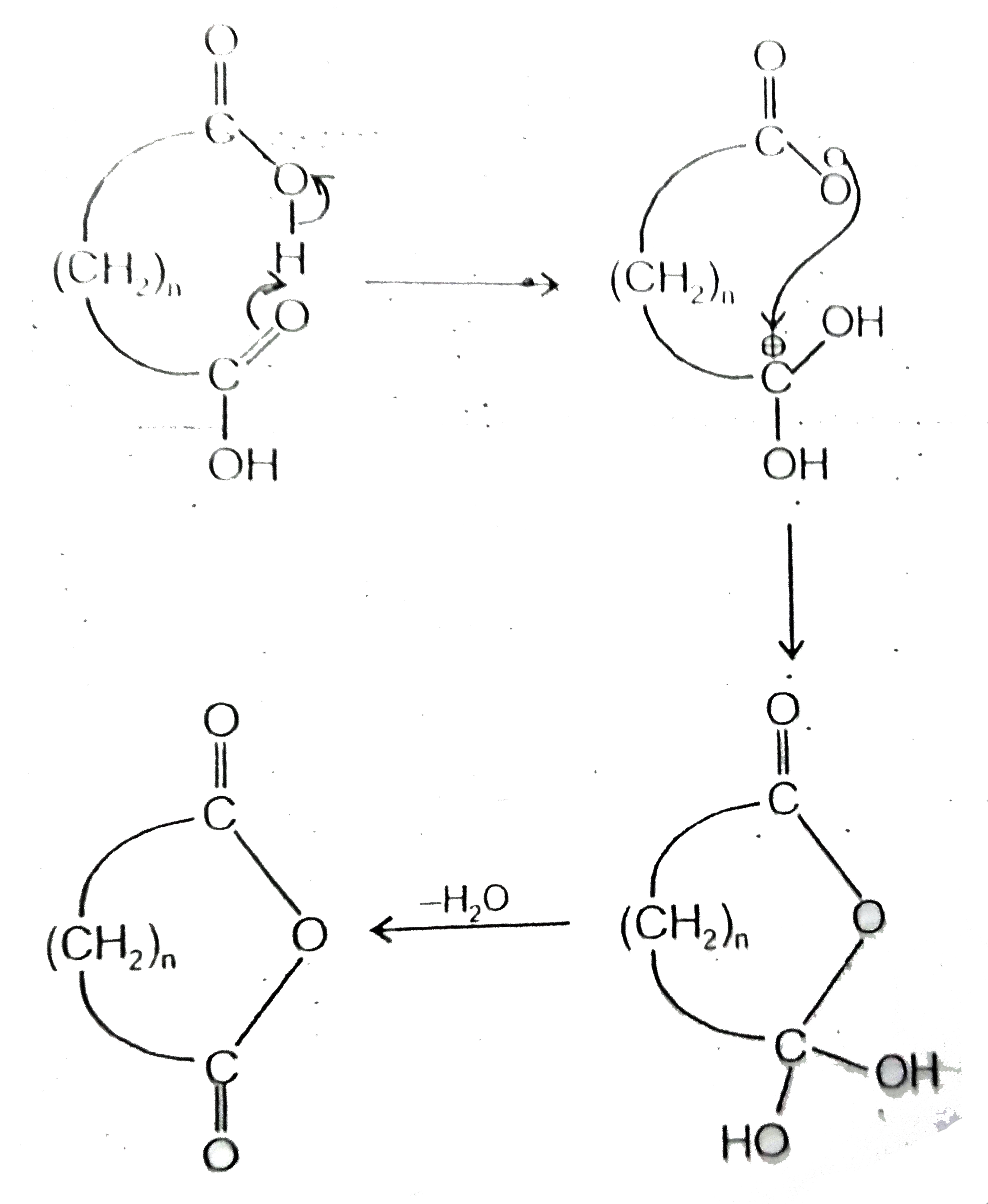
Which of the following dicarboxylic acid would you expect to form cyclic anhydride?A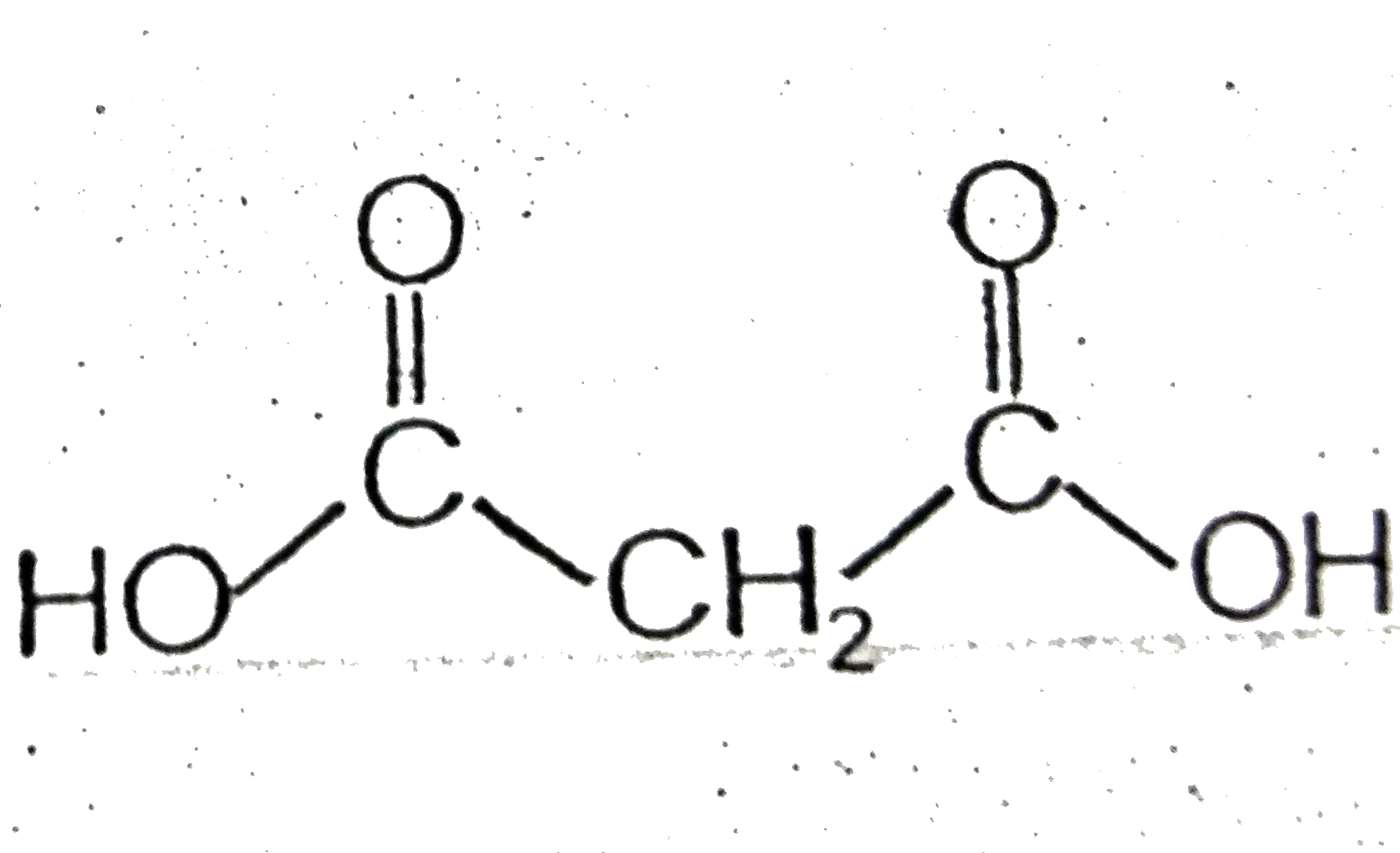 B
B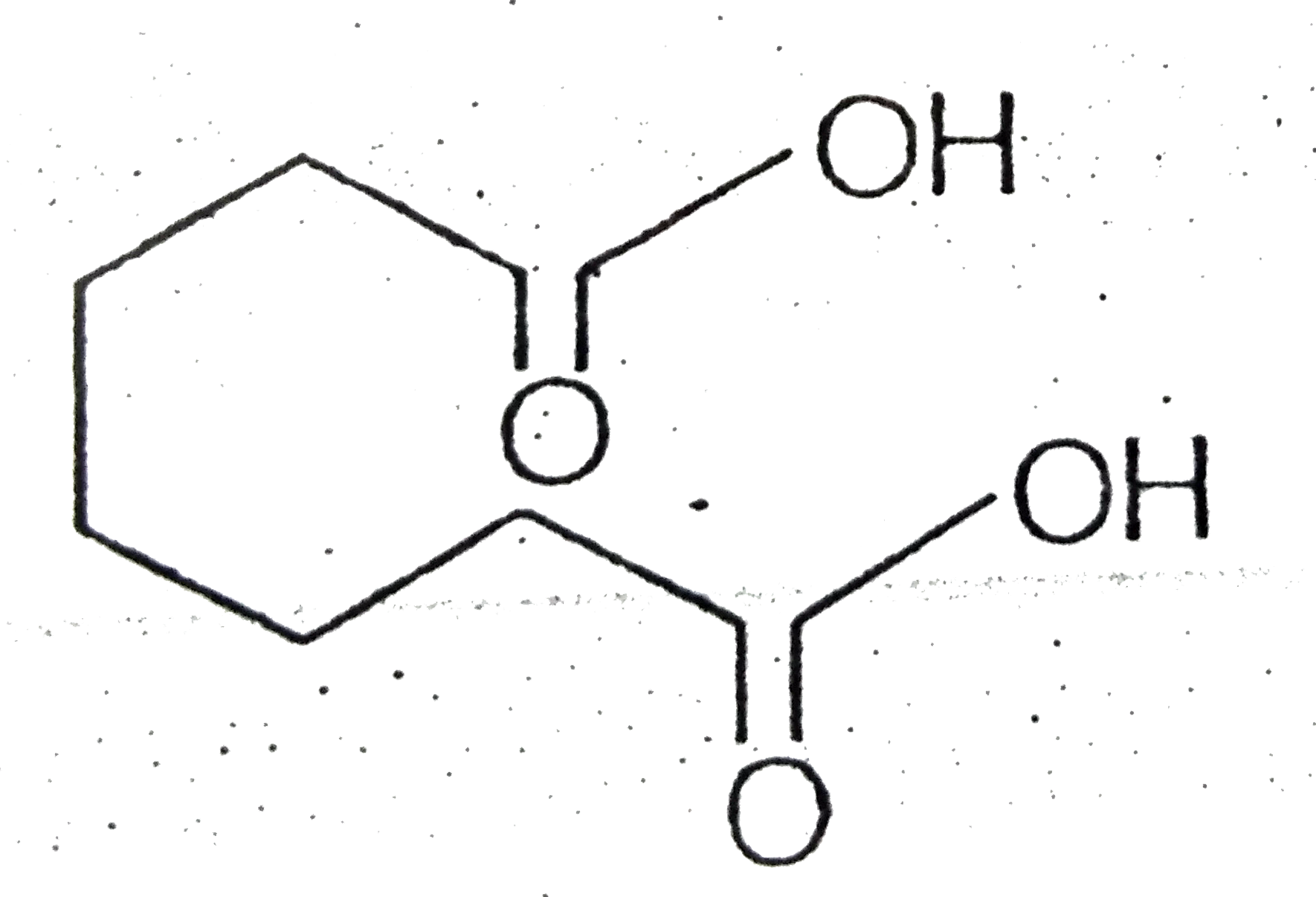 C
C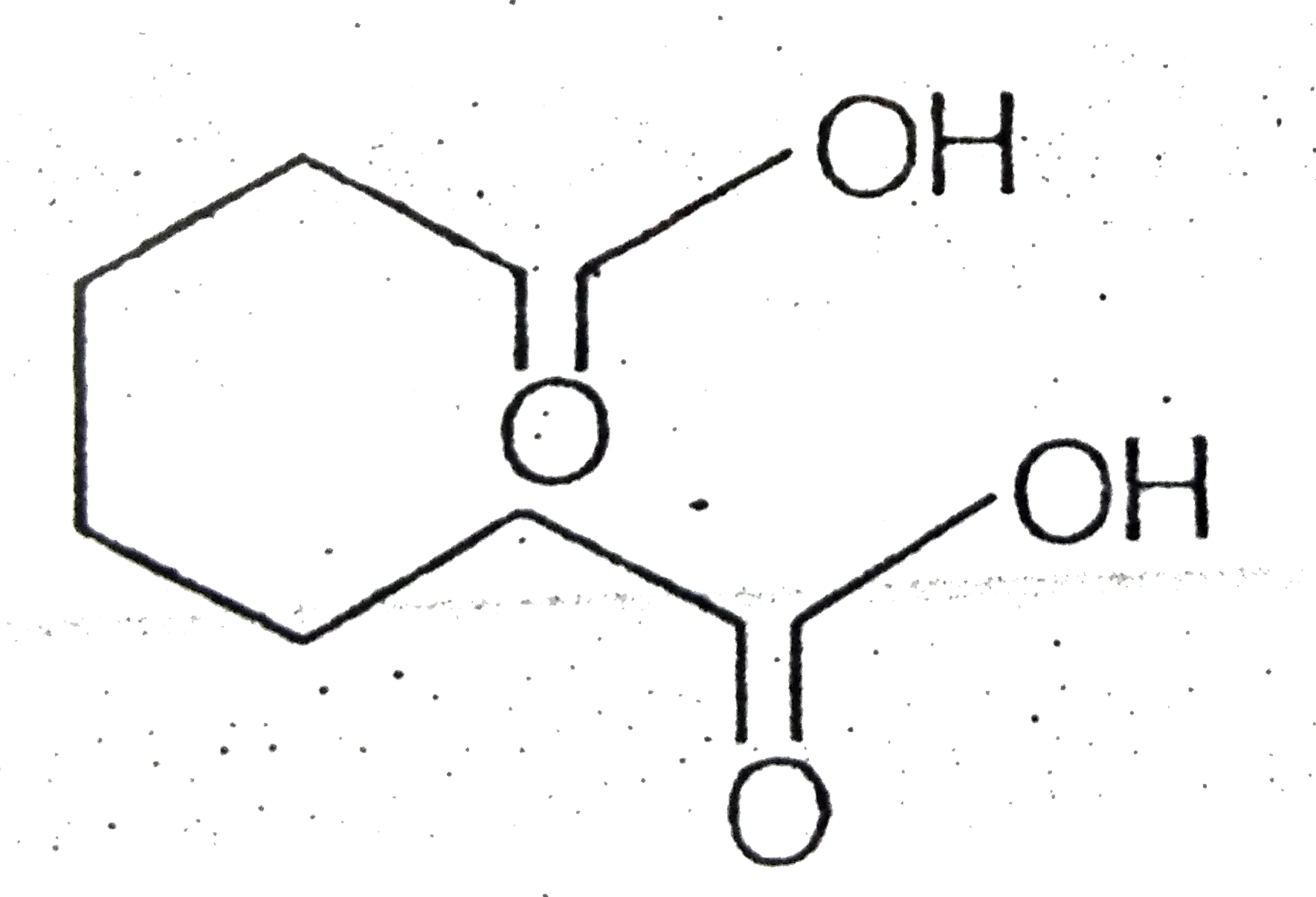 D
D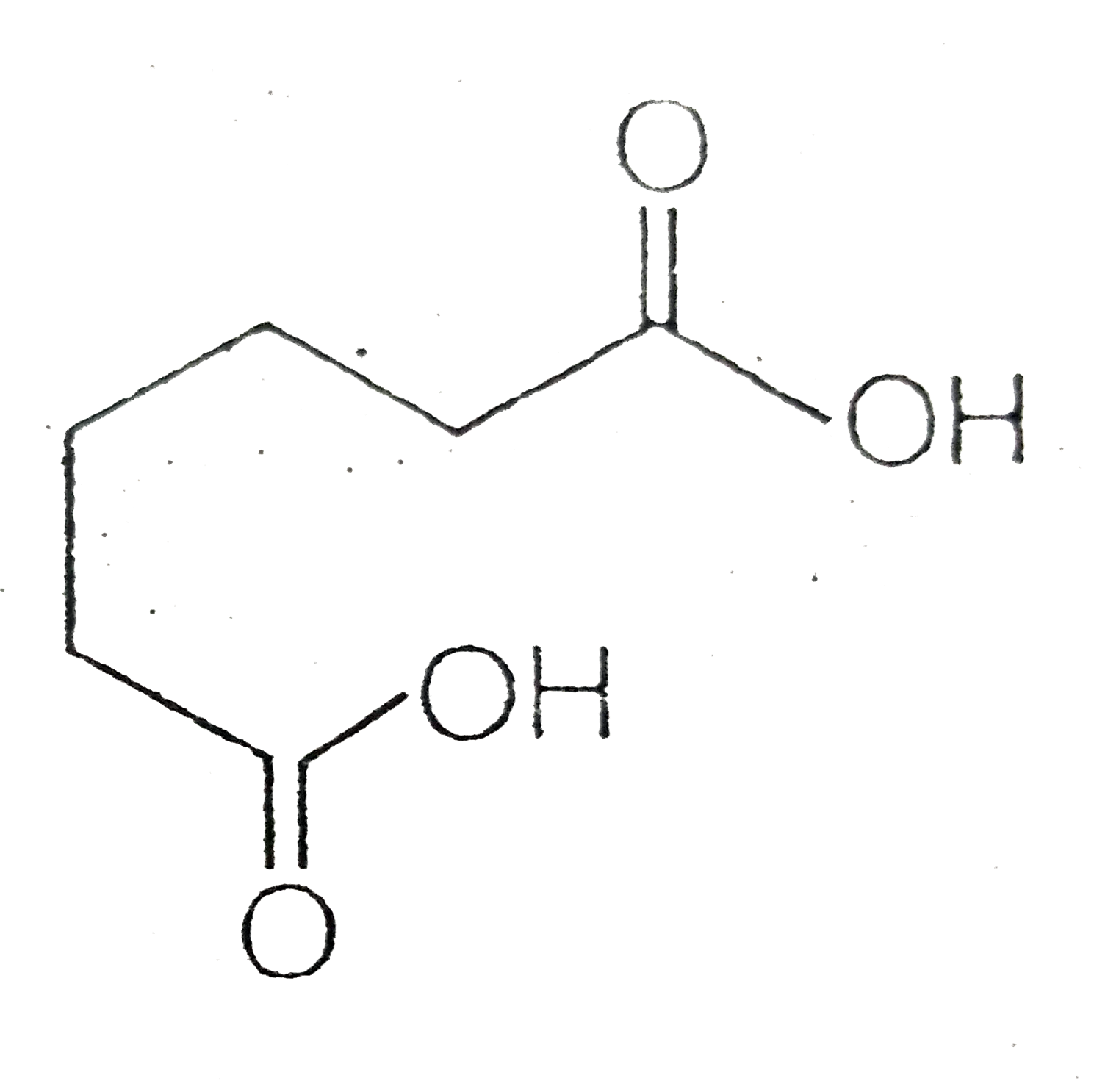
Certain dicarboxylic acids spontaneously eliminate water when heated forming cycioc anhydirides. But for the reaction to be successfully. The cyclic anhydrides product must normally have a ring size of fivee or six members. There are two important reasons, first, the second carboxyl group can serve as the acid catalyst (by intramolecular proton transfer), as well as the nucleophile. And second, the high temperature involved reduce the need for catalyst.
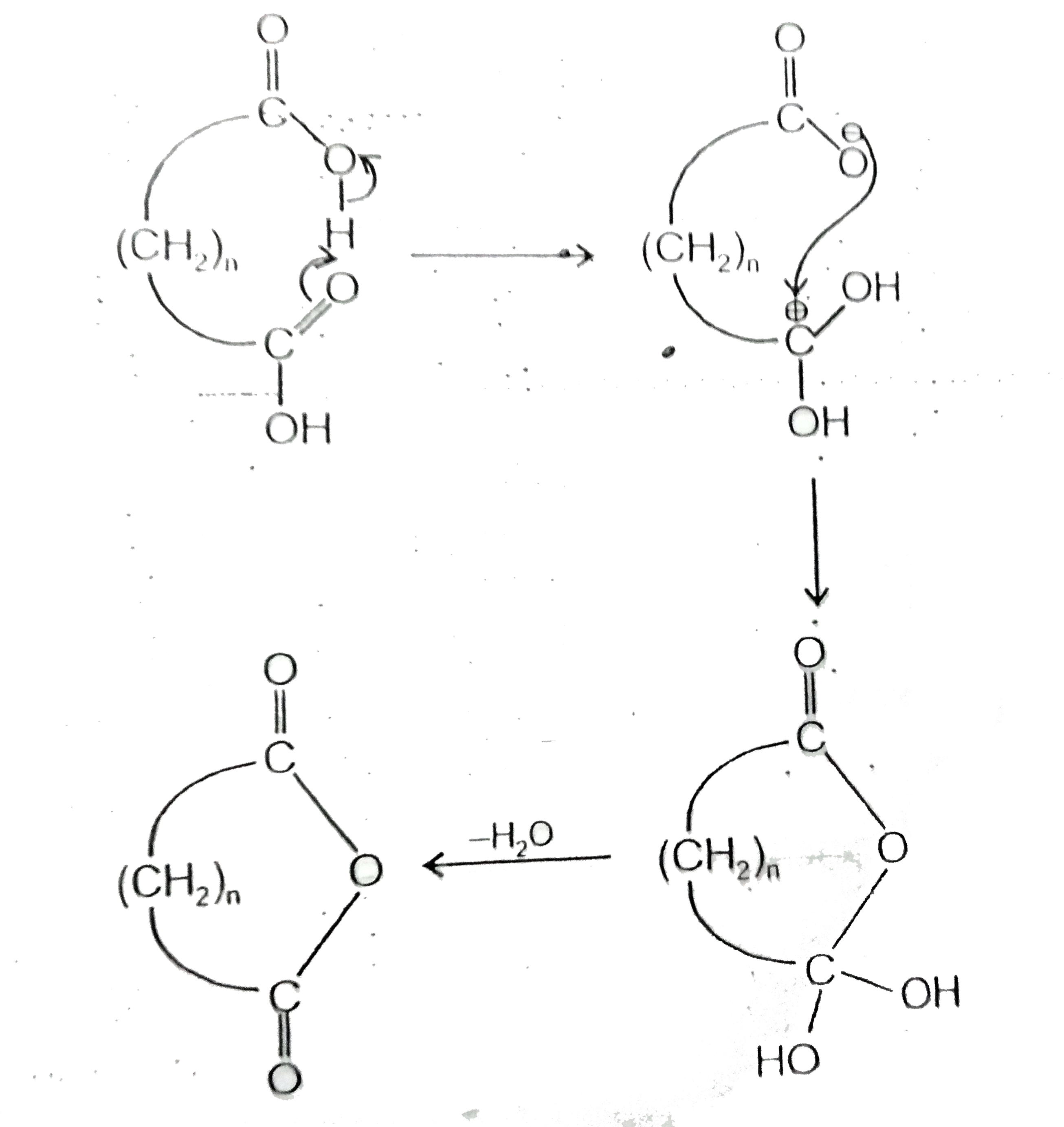
Consider the following sequence of reaction,

The final product of the reaction would beA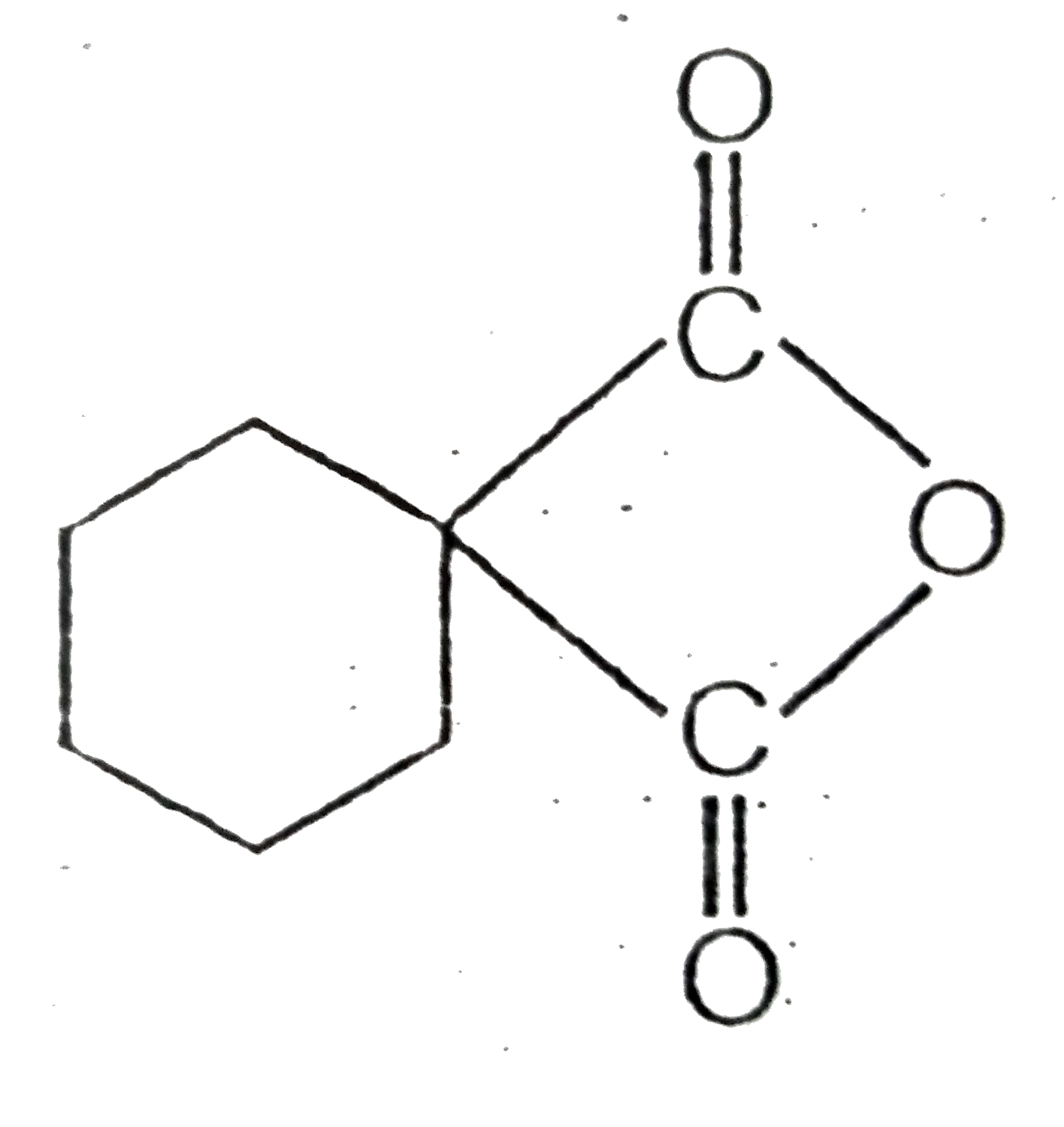 B
B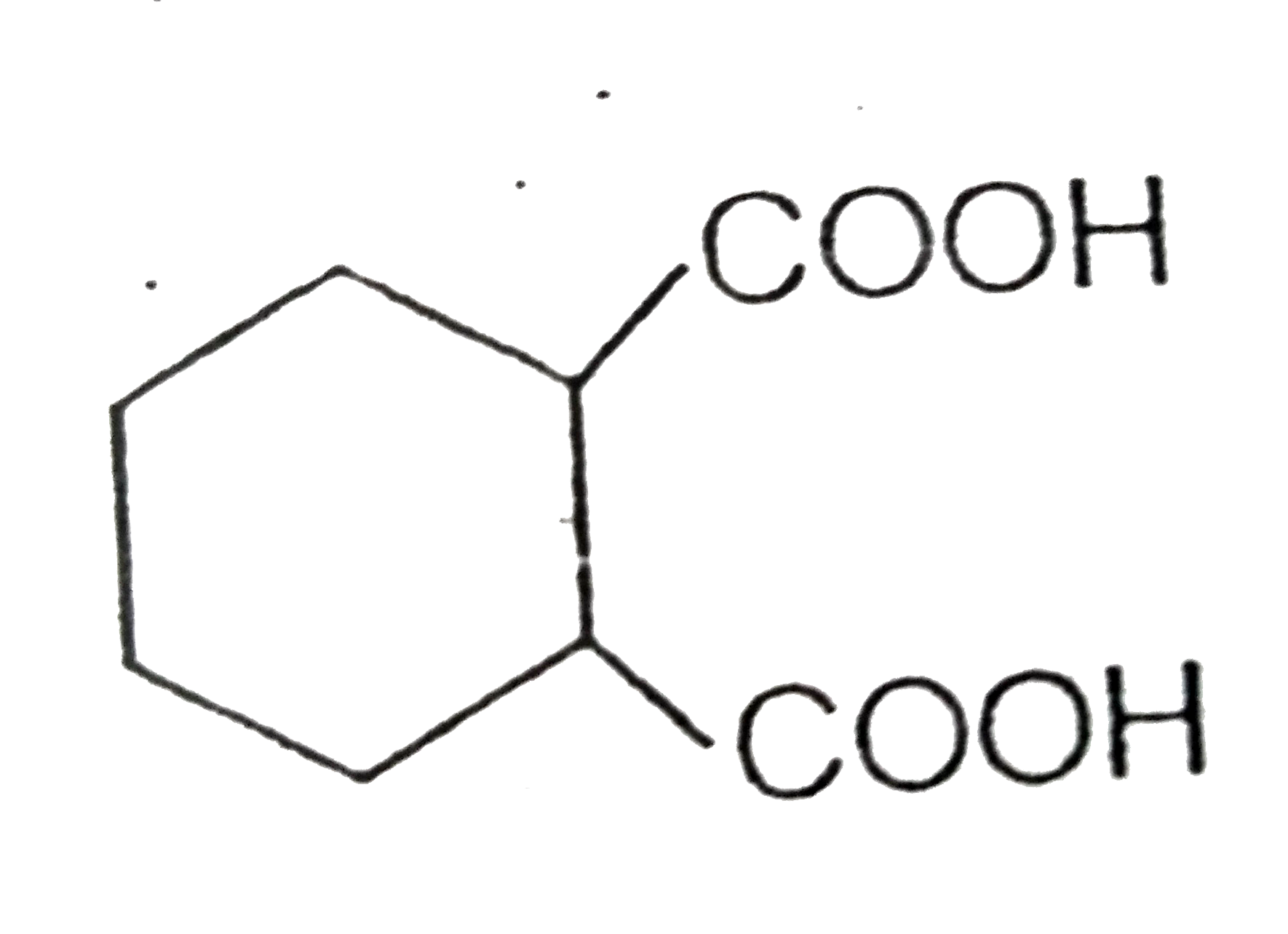 C
C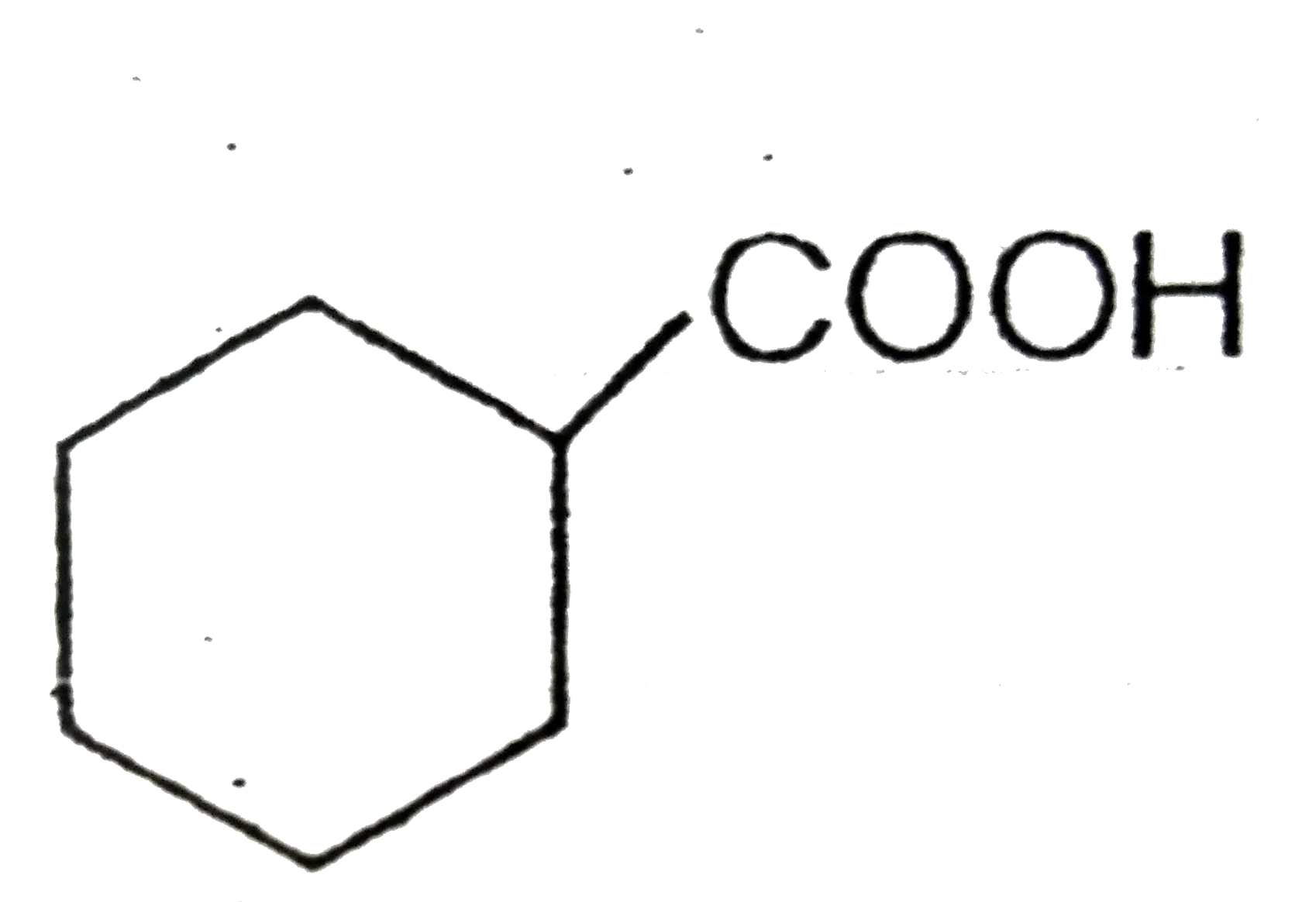 D
D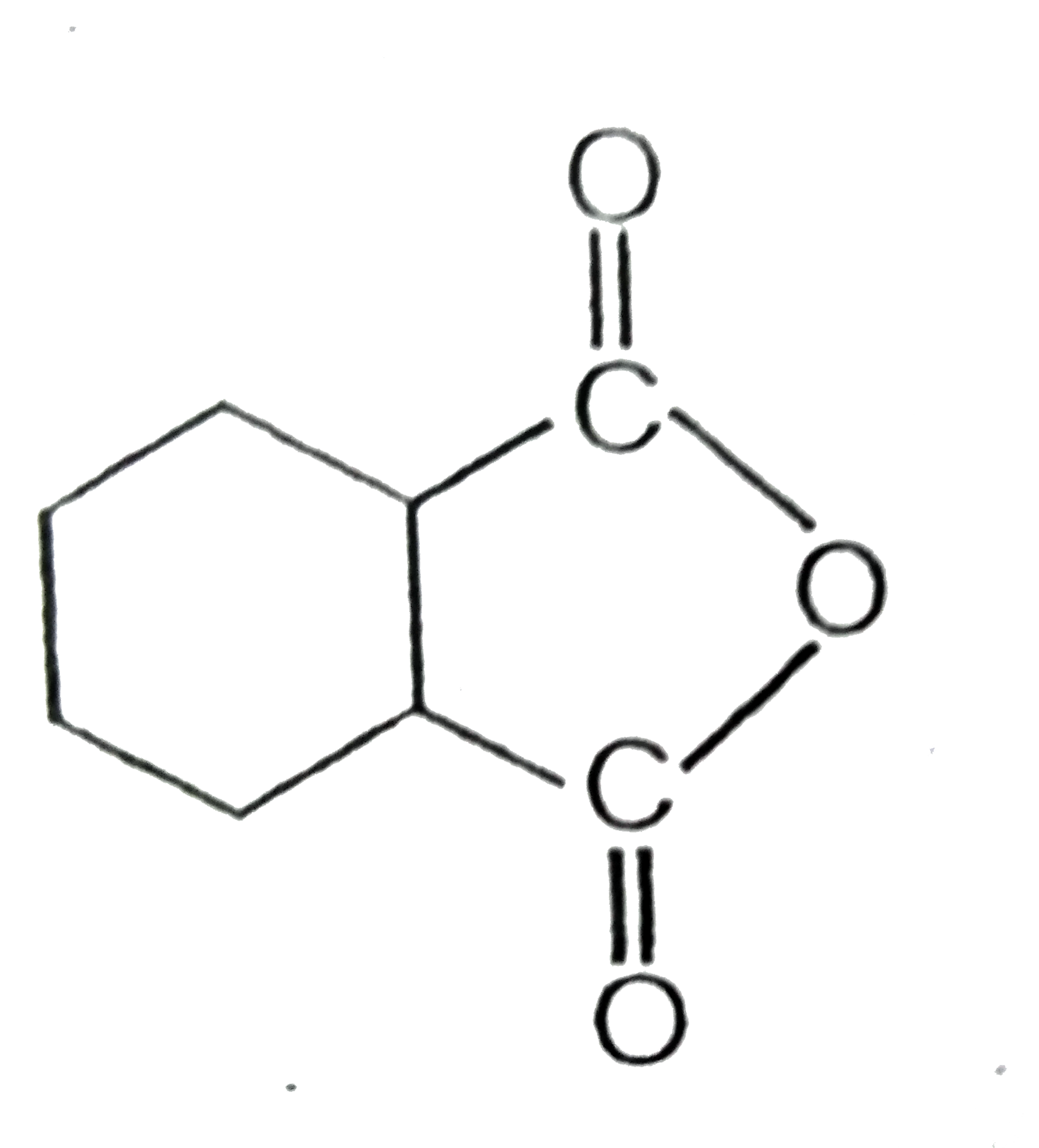
Which of the following dicarboxylic acids gives a cyclic anhydride on heating?
ACH2(COOH)2B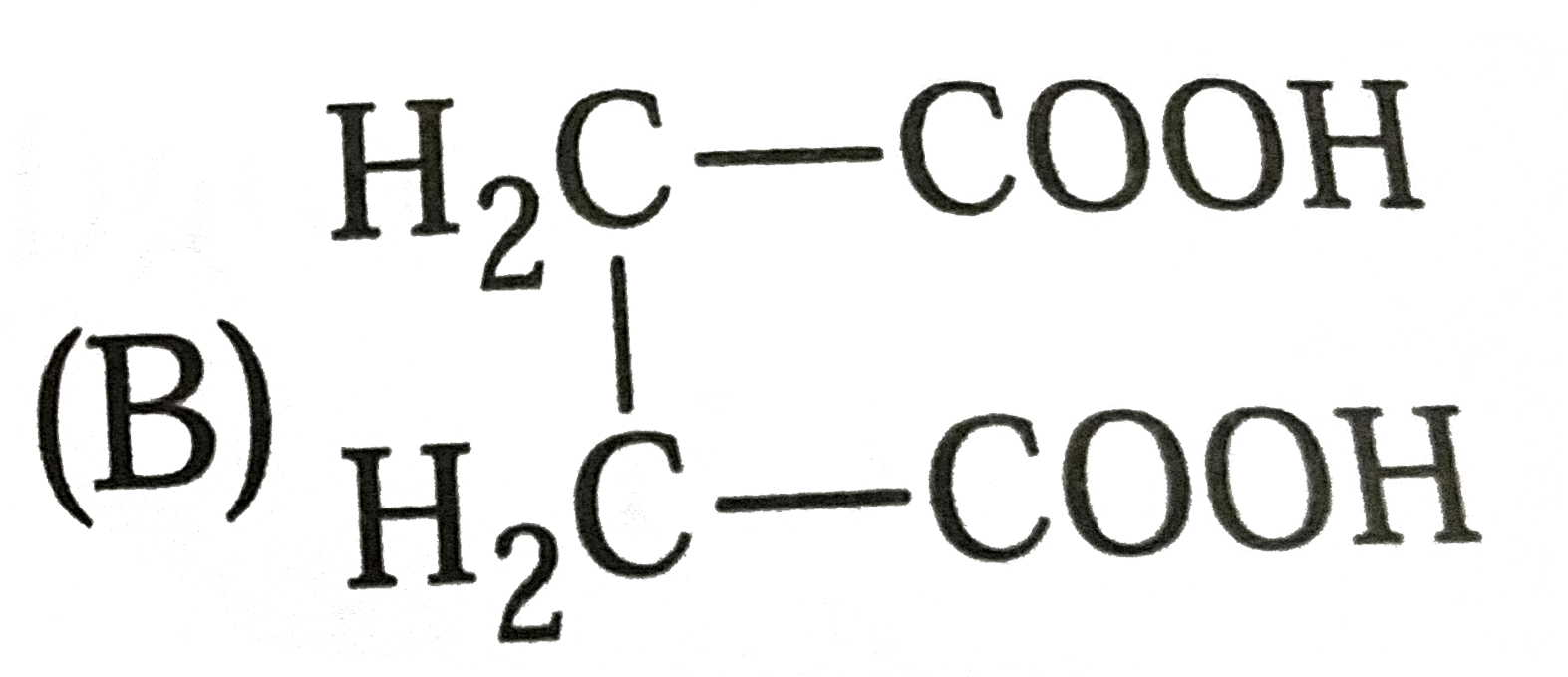 CHOOC(CH2)4COOHDHOOC(CH2)5COOH
CHOOC(CH2)4COOHDHOOC(CH2)5COOH
First dicarboxylic acid formed during TCA cycle is
View SolutionWhich of the following organic acid decolourises bromine water as well as forms anhydride ?
View SolutionWhen glycol is heated with dicarboxylic acid, the products are:
View SolutionWhich of the following reactions requires high temperature and catalyst ?
View SolutionWhen glycol is heated with dicarboxylic acid, the products are:
View Solution
